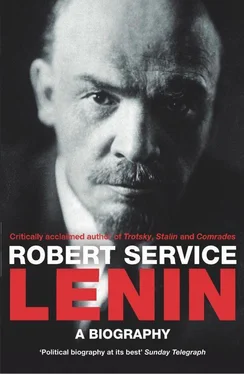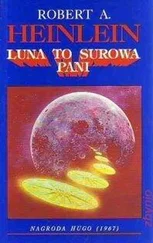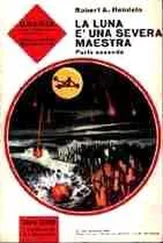Ilya was not a talkative person and often shut himself away in his study when he was at home. He showed enthusiasm when he was chatting about education and lived for his work. He did not yearn for praise from others, and was rather stingy in praising others when they did well at work. Indeed both Ilya and Maria were emotionally undemonstrative. It took something wholly extraordinary to make them show their feelings – when the younger Olga died as a baby, Ilya sobbed his heart out. 31But Ilya and Maria were otherwise stolid, quiet individuals. As young adults they already looked middle-aged. Ilya was self-conscious about his premature baldness, and tried to disguise it by brushing forward what was left of his hair. Yet his burning ambition as a kind of cultural missionary was unmistakable; and he and his wife Maria – whose inner calm was extraordinary – were a couple who impressed everyone with their commitment to cultural enlightenment. 32
Ilya’s job as Inspector of Popular Schools was not one he could discharge from his study on Simbirsk’s Streletskaya Street. By the last year of his life there were 444 primary schools and more than twenty thousand pupils in Simbirsk province. 33He had to travel around an area of nearly sixteen thousand square miles, and was frequently away for weeks at a time. Ilya had been appointed as Inspector only eight years after the Emancipation Edict of 1861; his job in the early years lay not so much in the inspection of pedagogical standards as in the supervised construction of suitable buildings in appropriate locations. This required much initiative. In town and village he had to ensure that things were being done to a proper level of efficiency and safety. From spring through to early autumn Ilya would take a tarantas to visit the provincial schools. The tarantas was not the most comfortable horse-drawn vehicle of its day since it had no springs. But it was sturdy and the roads in Simbirsk province were primitive. In any case things were better for Ilya in the winter when he could travel by sleigh. Whatever the season, however, the energy he expended in his early and middle career was extraordinary.
The Ulyanovs spent their summers in the Blank house at Kokushkino. Before Vladimir was born, they had also taken a trip with their children Anna and Alexander to visit Ilya Ulyanov’s surviving relatives in Astrakhan. Ilya’s mother Alexandra and elder brother were still alive. Anna Ulyanova never forgot the affectionate fuss made of herself and her brother Alexander. It was so different from what she was used to at home. Her mother Maria, however, disapproved. As often happens in families, she applied a regime of emotional austerity to her children even though she thought her own parents had been too severe towards her and her sisters. Maria Alexandrovna also thought her children were being ‘excessively spoiled’ by her Astrakhan in-laws. 34The Astrakhan trip was not repeated, and when the Ulyanovs visited relatives from then onwards, it was always to Maria Alexandrovna’s side of the family. 35Dr Blank was delighted to see his new grandson Vladimir, who was brought to Kokushkino with the rest of the family in the early summer of 1870. Old Dr Blank was not at home when the party arrived, and had to ascend the stairs to find Maria Alexandrovna. She met him proudly on the landing with the baby in her arms. Her father proceeded to make a medical examination of Vladimir and to ask questions about his progress. 36
But Vladimir was to have no memory of his grandfather because, on 17 June, Dr Blank suddenly died. The estate at Kokushkino passed into the joint possession of the old man’s daughters, who kept it as a place for their families to relax together in the summer months. Their joys did not include the obligations of manual work. July was the time when the harvest was taken in and when the peasants of Kokushkino worked their hardest. They sweated in the fields where food and drink was brought out to them at midday; in the evening, folk songs were sung with gusto. This environment was familiar to the visiting Ulyanovs, but they took no part in it. They were on holiday. They were escaping the cares of their urban existence; but they refused to romanticise their rural surroundings. Peasant life was not very appealing to them – and the distrust shown by the recently emancipated serfs to Dr Blank cannot have helped matters.
Meanwhile Ilya Ulyanov had risen still higher in society. In July 1874 he was promoted from Inspector to Director of Popular Schools for Simbirsk province. Automatically he thus emulated Dr Blank and became a ‘state councillor’ and hereditary nobleman entitled to be addressed as ‘his Excellency’. Ilya’s absences continued to be frequent and lengthy, but Maria was more than capable of handling the situation. Like other middle-class families of the period, the Ulyanovs employed a cook to relieve the burden upon Maria, and nanny Sarbatova looked after the children from 1870. Workers, too, were hired when snow needed to be cleared or wood sawn. The Ulyanovs were similar to any other middle-class family.
Ilya and Maria were also loyal subjects of Alexander II and were committed to the reforms initiated with the Emancipation Edict of 1861. During the Russo-Turkish War of 1877–8, Ilya patriotically collected voluntary contributions for the care of wounded troops. 37In turn he was proud to accept the various awards, including the Order of Stanislav (First Class) in January 1887, which were conferred in respect of his professional achievements. Ilya and Maria avoided contact with anyone who caused trouble to the authorities. But they made an exception in respect of Dr Alexander Kadyan, whose subversive political opinions had led him to being sent into administrative exile in Simbirsk. This meant that he was obliged to stay within the limits of the town and remain under police surveillance. Ilya and Maria became acquainted with him and asked him to act as their family physician. The relationship, however, remained strictly medical, and the Ulyanovs scrupulously declined to discuss public affairs with him. Throughout the 1860s Ilya and Maria acted on the assumption that a line of official reforms would be followed permanently in the Russian Empire, and they discouraged their children from showing any sympathy for revolutionary ideas.
If his father and mother were so loyal to their Imperial sovereign, how can they have had much influence upon the development of the world’s greatest revolutionary? The question is easily answered. Every substantial memoir points in the same direction. Lenin’s parentage and upbringing moulded his personality, and Ilya and Maria had a profound, lasting influence on every single one of their children. They gave them a model of dedication. They worked hard, and put a high value on the life of the mind. To the children they transmitted a burning ambition to succeed. Ilya and Maria were half inside and half outside the Simbirsk provincial elite. At that time plenty of capable, educated individuals rose to membership of the gentry. The Russian Empire was in flux. Large-scale social changes were still going on. It would have been astonishing in such a society if the Ulyanovs had undergone complete assimilation within a single generation. They had made a massive advance, but they had not yet ‘arrived’. This transitional status did not matter much to Ilya and Maria at the time. They could cope with the tensions.
It is not social but national and ethnic factors that have stirred controversy. Russian nationalists have always claimed that Lenin’s ideology is directly attributable to the fact that he was someone who had little Russian blood coursing through his veins. The Jewish ingredient in his ancestry is the object of particular attention. Such commentary itself is mostly xenophobic. For ethnicity is not an exclusively biological phenomenon; it is also produced and reproduced by the mechanisms of language, education and social and economic relationships. The important thing about Ilya and Maria Ulyanov was that they thought, talked and acted as Russians – and so, too, did their children. Their ethnic origins barely affected them in their daily lives.
Читать дальше












